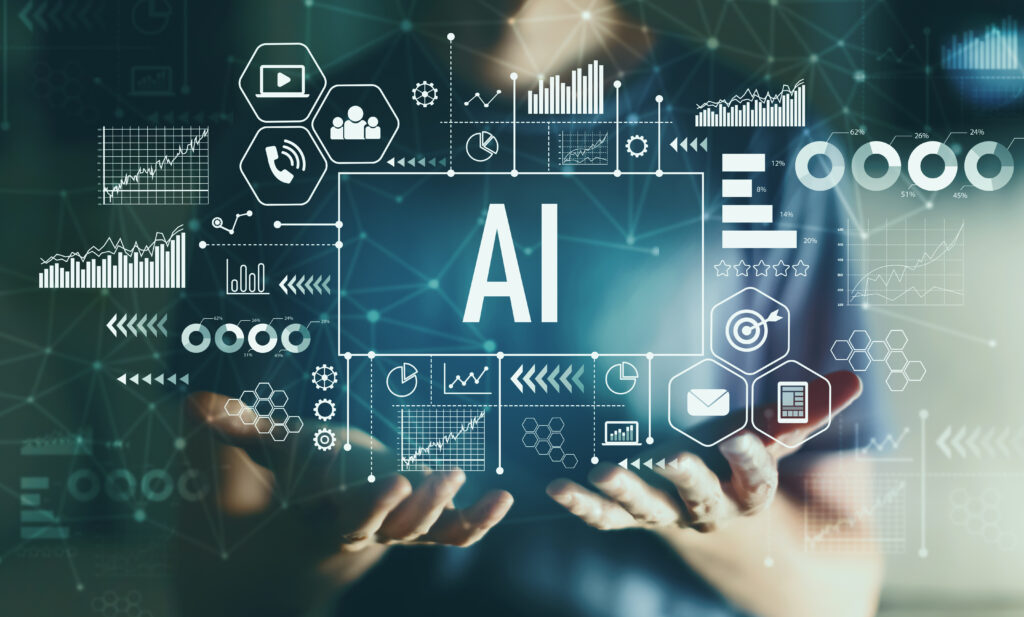Governance of AI
April 10, 2024

The use of artificial intelligence (AI) poses governance challenges for governments, organizations and businesses alike. Let’s take a brief look at some global and governmental initiatives, and see how we can help your organization or business deal with current legislation and its specific needs.
Overview
Gouvernance and legislation
With AI technology revolutionizing the world, national and international organizations, as well as governments, are trying to regulate its development and use.
Let’s mention a few of the most important initiatives that advocate a risk assessment approach to the use of AI, such as the EU Artificial Intelligence Acti and the Risk Management Framework of the US National Institute of Standards and Technologyii.
In Canada, the Artificial Intelligence and Data Act (AIDA)iii proposed in Bill C-27 also advocates this approach.
In Quebec, the Loi modernisant des dispositions législatives en matière de protection des renseignements personnels (law 25)iv imposes new measures on public bodies and private companies to ensure better protection of privacy while taking into account new technological realities such as AI.
The Quebec Innovation Council has also initiated a collective reflection on the framework for AIv.
It is also recognized that a specific framework for generative AI is desirable, not least because of the particular risks associated with the protection of privacyvi.
Ethical principles
To establish their governance frameworks, organizations and governments base their work on guiding ethical principles, in particular those of the Montréal Declaration for a Responsible Development of Artificial Intelligencevii
- Well-being
- Respect for autonomy
- Protection of privacy and intimacy
- Solidarity
- Democratic participation
- Equity
- Diversity inclusion
- Prudence
- Responsibility
- Sustainable development
and the AI principles of the Organisation for Economic Co-operation and Development (OECD )viii.
- Inclusive growth, sustainable development and well-being
- Human-centred values and fairness
- Transparency and explainability
- Robustness, security and safety
- Accountability
As you read through these principles, you may have recognized a few that reflect those of your own organization.
Your governance rules
How do these laws and ethical principles apply to your organization? How can you establish governance rules for the use of AI that respect the uniqueness of your organization? Each organization has its own specific needs, values and policies. Each operates in a particular sector, subject to its own regulations and standards.
Our solution
We’ve been thinking about these same questions in relation to our own use of AI in our services.
We offer you a flexible, customized approach to setting up governance rules for your organization’s use of AI. These rules will meet government and stakeholder requirements, and ensure that the right accesses are allocated to the right users. In the case of generative AI tools, restrictions can go as far as pre-establishing prompts.
Please contact us for more information.
iThe EU Artificial Intelligence Act
https://artificialintelligenceact.eu/
iiRisk Management Framework of the National Institute of Standards and Technology
https://nvlpubs.nist.gov/nistpubs/ai/NIST.AI.100-1.pdf
iiiThe Artificial Intelligence and Data Act (AIDA)
https://ised-isde.canada.ca/site/innovation-better-canada/en/artificial-intelligence-and-data-act-aida-companion-document
ivLoi modernisant des dispositions législatives en matière de protection des renseignements personnels (loi 25) Protection des renseignements personnels – Entreprises et organisations privées (in French only)
https://www.cai.gouv.qc.ca/protection-renseignements-personnels/information-entreprises-privees?protection-des-renseignements-personnels-1/
vRéflexion collective sur l’encadrement de l’IA (2023) (in French only)
https://conseilinnovation.quebec/wp-content/uploads/2024/02/T1-DossierThematique-3.pdf
viStatement on Generative AI. Roundtable of G7 Data Protection and Privacy Authorities (June 21, 2023)
https://www.priv.gc.ca/en/opc-news/speeches/2023/s-d_20230621_g7/
viiThe Montréal Declaration for a Responsible Development of Artificial Intelligence
https://montrealdeclaration-responsibleai.com/the-declaration/
viiiOECD AI Principles overview
https://oecd.ai/en/ai-principles


 info@hybformation.com
info@hybformation.com








